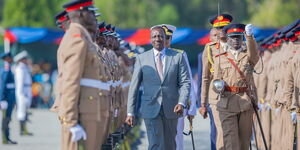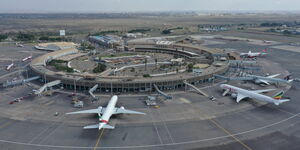An avoidable error during the construction of the new Mombasa-Nairobi pipeline is set to cost the Kenyan taxpayer Ksh2 Billion.
A report by the Daily Nation revealed that Kenya Pipeline Company (KPC) managers opted against the installation of a leak detection system - deeming it an unnecessary cost.
Lebanese firm Zakhem International Construction (ZIC) had been hired by KPC to build the line, however, their proposal to install the crucial system at an extra cost of Ksh400 million was ignored.
KPC instead opted to have the component bought separately, a decision that forced the National Assembly Energy Committee to initiate investigations.
Chaired by Fafi MP Abdikarim Osman, the committee is reportedly puzzled by the decision to allow Zakhem to install the gadget.
“KPC management is very opaque. Had Zakhem been allowed to install the detector, Kenyans would not be asked to pay the Sh2 billion,” Mr Osman stated.
Reports further stated that on May 22, 2019, Zakhem sent a letter to KPC's acting General Manager Joseph Kones, highlighting the importance of having the gadget installed.
“Installation of the system was cancelled by KPC at the last minute,” Zakhem Project Manager John Begisen revealed.
Instances of leakages across the pipelines resulting in losses worth billions of shillings have since been reported.
“With our experience in the construction of pipelines, repairs, and replacement of existing ones, ZIC had foreseen such problems,” read an excerpt from the letter sent to KPC.
Back on October 3, 2019, Zakhem sued KPC Ksh13.26 billion after State House froze payment to the firm over cost escalation during the building of the Mombasa-Nairobi pipeline.
Petroleum Cabinet Secretary John Munyes had in July told the Public Investments Committee (PIC) that the Presidency stopped payment to Zakhem pending an independent review of the pipeline construction costs.
Back on August 6, 2019, detectives started investigations into tender variation claims for the construction of the Ksh48 billion pipeline, and looked into reports that insiders attempted to collude with the contractor and earn Ksh4.4 billion by delaying the project.
Finally, the matter reached State House and President Uhuru was forced to personally stop the payments, leading to the lawsuit.












